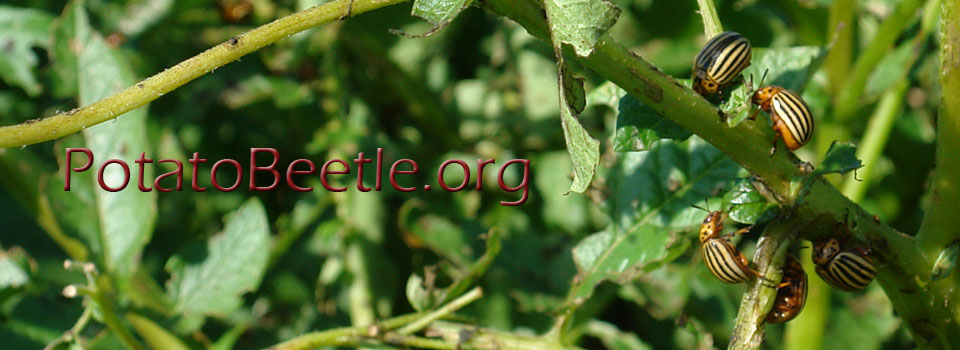Xu, Q.-Y., Q.-W. Meng, P. Deng, K.-Y. Fu, W.-C. Guo, and G.-Q. Li. Bulletin of Entomological Research https://doi.org/10.1017/S0007485318001050
Dietary delivery of bacterially expressed double-stranded RNA (dsRNA) has a great potential for management of Leptinotarsa decemlineata. An important first step is to discover possible RNA-interference (RNAi)-target genes effective against larvae, especially the old larvae. In the present paper, five putative Broad-Complex (BrC) cDNAs (Z1-Z4, and Z6) were identified in L. decemlineata. The expression of the five LdBrC isoforms was suppressed by juvenile hormone signaling, whereas the transcription was upregulated by 20-hydroxyecdysone signaling at the fourth (final) instar larval stage. Feeding of bacterially expressed dsBrC (derived from a common fragment of the five LdBrC variants) in the third- and fourth-instar larvae successfully knocked down the target mRNAs. For the fourth-instar LdBrC RNAi hypomorphs, they had a higher larval mortality compared with the controls. Moreover, most dsBrC-fed beetles did not pupate normally. After removal of the apolysed larval cuticle, a miniature adult was found. The adult head, compound eyes, prothorax, mesothorax, metathorax were found on the dorsal view. Distinct adult cuticle pigmentation was seen on the prothorax. The mouthparts, forelegs, midlegs, and hindlegs could be observed on the ventral view of the miniature adults. For the third-instar LdBrC RNAi specimens, around 20% moribund beetles remained as prepupae and finally died. Therefore, LdBrC is among the most attractive candidate genes for RNAi to control the fourth-instar larvae in L. decemlineata.
